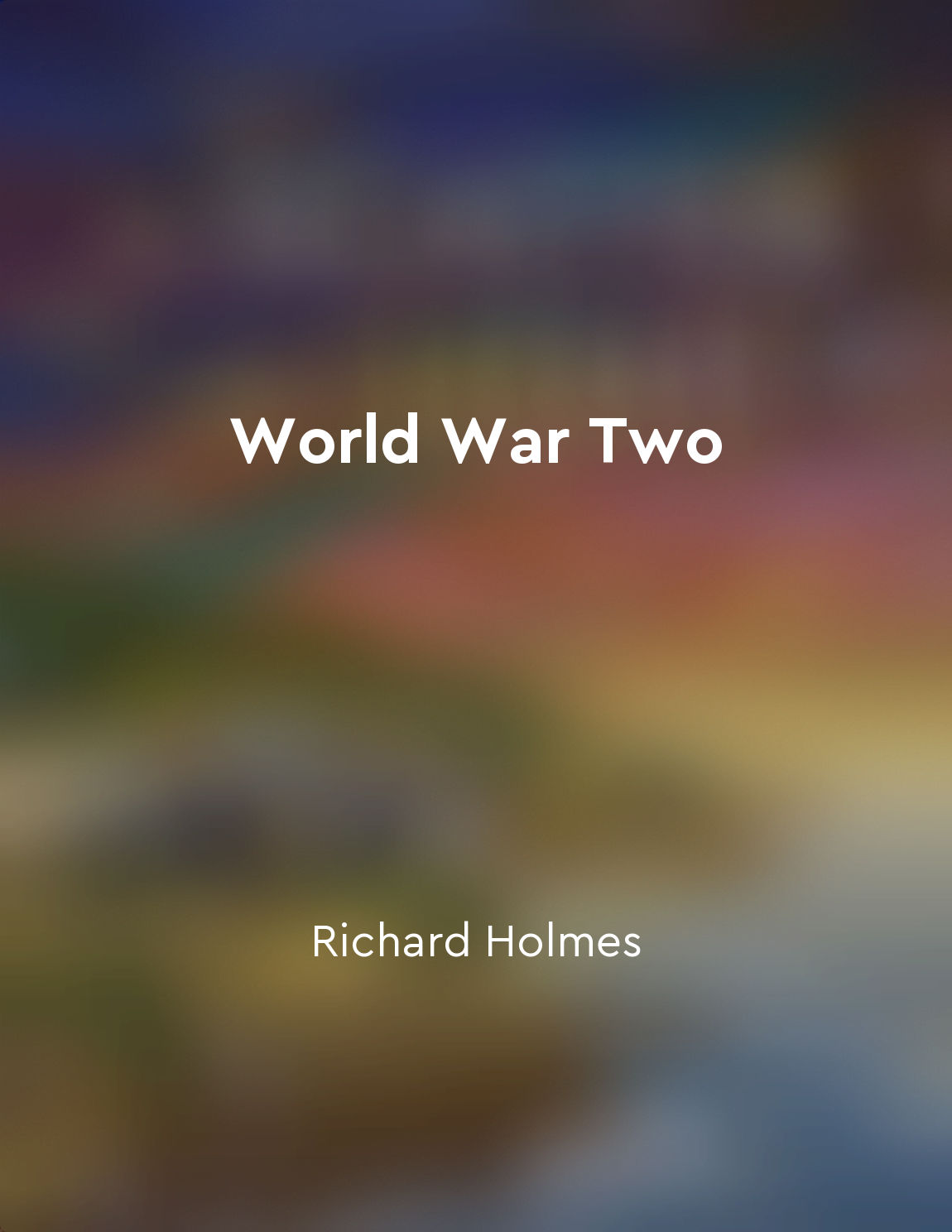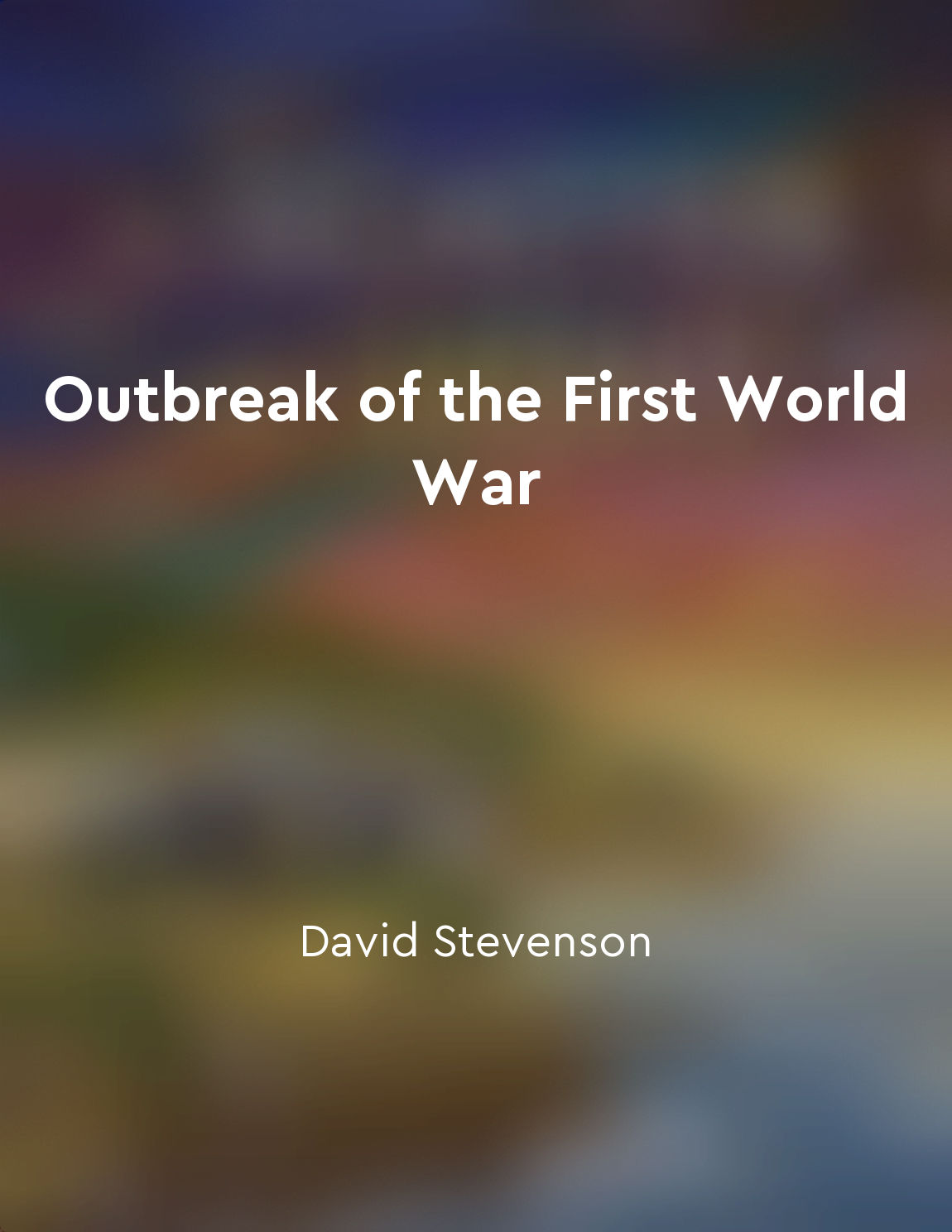The war highlighted the fragility of peace from "summary" of The Pity Of War by Niall Ferguson
The Great War, also known as World War I, shattered the illusion of peace that had prevailed in Europe for decades. Prior to the outbreak of hostilities in 1914, many believed that the continent had entered a new era of stability and cooperation. However, the war quickly revealed the underlying tensions and rivalries that had been simmering beneath the surface. It demonstrated how easily peace could be disrupted and how fragile the foundations of international relations truly were. The conflict sparked by the assassination of Archduke Franz Ferdinand of Austria-Hungary in Sarajevo quickly escalated into a full-scale war that engulfed the major powers of Europe. The intricate system of alliances that had been established to maintain the balance of power on the continent crumbled in the face of escalating tensions and competing national interests. The war highlighted the inherent instability of such a system and the ease with which it could be undermined by a single event or miscalculation. As the war dragged on, it became increasingly clear that the peace that had existed prior to 1914 was not as solid as many had believed. The devastation and loss of life that accompanied the conflict served as a stark reminder of the human cost of war and the fragility of the peace that had preceded it. The war shattered the optimism and confidence that had characterized the pre-war years, leaving a legacy of bitterness and disillusionment in its wake. The Treaty of Versailles, which formally ended the war in 1919, did little to address the underlying causes of the conflict or to ensure a lasting peace. Instead, it imposed punitive measures on Germany that sowed the seeds of future resentment and conflict. The failure of the treaty to establish a stable and just peace settlement only served to highlight the fragility of peace in the aftermath of war. The Great War, with its unprecedented scale and brutality, laid bare the weaknesses and vulnerabilities of the international system that had been in place prior to 1914. It exposed the limits of diplomacy and the dangers of nationalist fervor and imperial ambition. The war served as a cautionary tale, reminding future generations of the dangers of complacency and the need for constant vigilance in the pursuit of peace.Similar Posts

Economic volatility often leads to conflict
Niall Ferguson argues that throughout history, economic volatility has been a key factor in leading to conflict. When economies...

War crimes trials held
Following the end of World War Two, many individuals responsible for committing heinous acts during the conflict were brought t...
The Eastern Front witnessed fierce fighting between Germany and Russia
The Eastern Front during World War I was a scene of relentless brutality and unending conflict between the forces of Germany an...
Mobilization plans put into action
The mobilization plans of the major powers in Europe played a crucial role in the outbreak of the First World War. These plans ...

Europe in early 20th century
In the early 20th century, Europe was facing a complex web of political, social, and economic challenges that would ultimately ...

Imperialism resulted in colonization of various regions
Imperialism was a powerful force that drove nations to expand their territories and influence beyond their borders. This drive ...
The war marked the end of an era
In the grand sweep of history, the First World War stands out as a momentous event that brought about significant changes in th...
